Jun 13, 2025
The Rise and Reinvention of Sam Ibrahim’s Cousin: From Nomads National President to Digital Empire
In the shadowy world of Sydney's underworld, few names resonate as powerfully as Sam Ibrahim and his notorious family. But to truly understand the dynamics of this criminal dynasty, one must delve into the life of his cousin, Modi Tajour. At nineteen, Modi became the youngest chapter president in the history of the Nomads motorcycle club, a position that would catapult him into the heart of Australia's most feared biker gang. By thirty-four, he was the national president, steering the club through turbulent times while enduring seven years in prison, including four and a half years in isolation, and surviving fifteen attempts on his life.
Yet, Modi's story is not just one of crime and punishment. It's a tale of transformation—from a ten-year-old boy in Western Sydney's housing commission flats learning to handle pistols while other kids played with toys, to a social media sensation commanding over half a million followers. This article explores the multifaceted journey of Modi Tajour, weaving through his early life, biker reign, imprisonment, and ultimate reinvention as a digital influencer. Join us as we uncover the layers behind the man who once ruled Sydney's streets and now rules the digital realm.
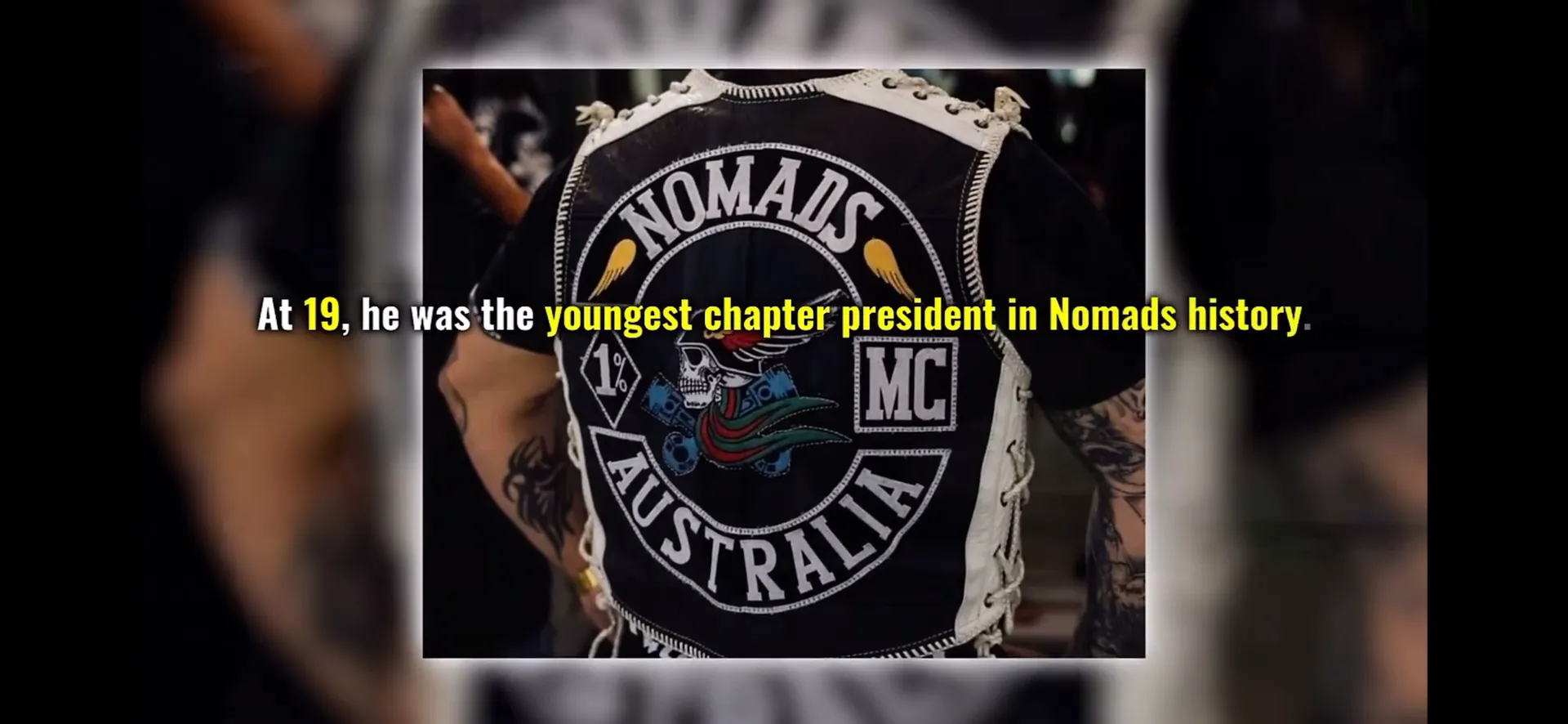
Table of Contents
- From Humble Beginnings: Growing Up in Western Sydney’s Housing Commission
- Entering the Biker World: The Nomads and the Making of a Prince
- New Year’s Eve 2006: The Incident That Changed Everything
- Prison: Isolation, Reflection, and the Birth of Notorious
- Return to the Nomads and the Rise to National President
- The Fall: Paranoia, Police Pressure, and Burning of Colors
- Life After the Club: Building a Digital Empire
- Conclusion: The Legacy of a Prince Reforged
- Frequently Asked Questions (FAQ)
From Humble Beginnings: Growing Up in Western Sydney’s Housing Commission
Modi Tajour’s upbringing was far from ordinary. Born in Maryland, a suburb in Western Sydney known for its public housing, Modi’s childhood was marked by contrasts. While other children played with toys, by the age of ten, Modi was already learning how to handle firearms.
"Wasn't normal kid, bro. Like, I clocked a gun back at the age of ten."
Despite the tough environment, Modi was surrounded by powerful figures from an early age. His cousins, Sam and John Ibrahim, had become dominant forces in Sydney’s underworld, rising from the same commission flats to rule the streets of King’s Cross. Their influence was so profound that expensive cars like Ferraris and Lamborghinis were a common sight outside Modi’s childhood home, where men in expensive suits frequently visited his mother.
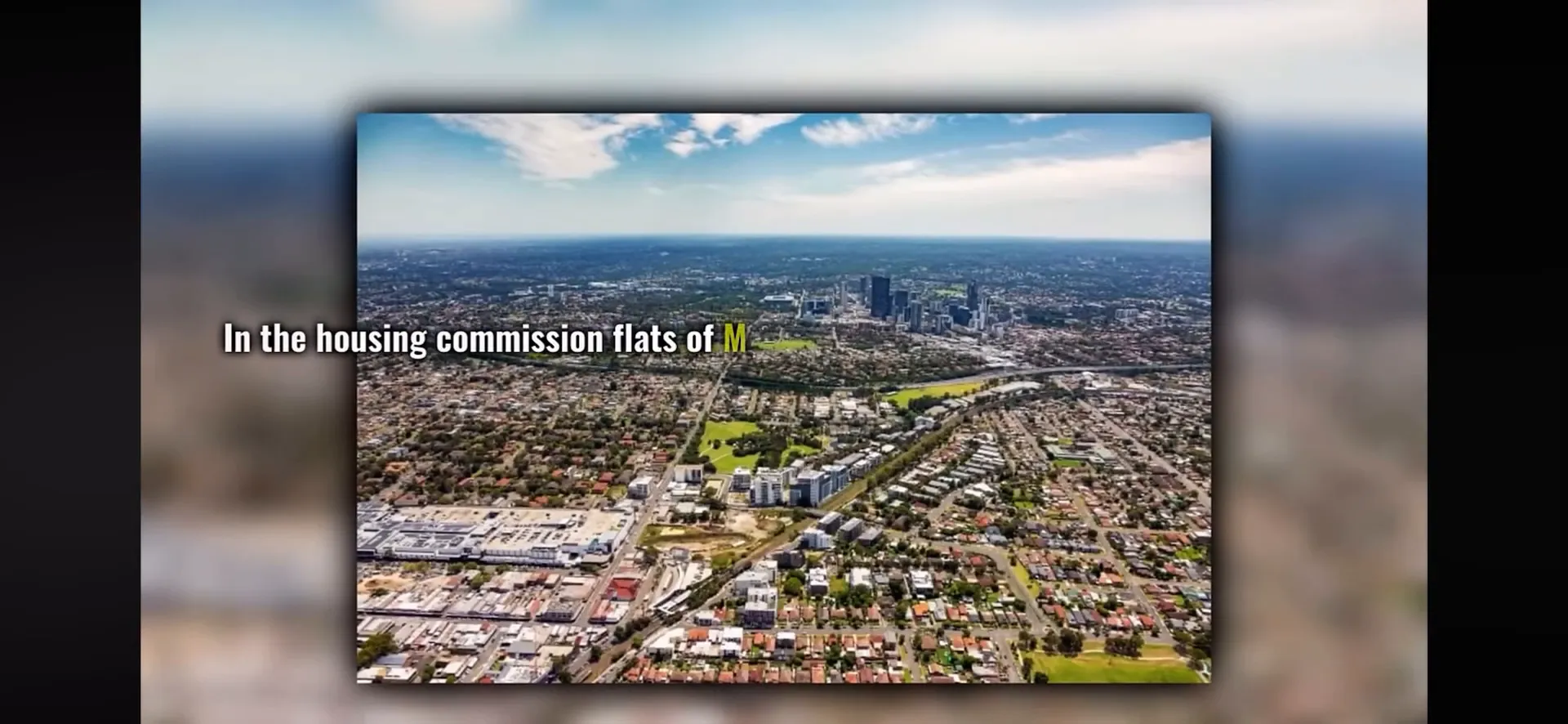
Among these visitors was Roger Rogerson, a detective later infamous for corruption, who was then orbiting the Ibrahim family's growing empire. This early exposure to a criminal dynasty shaped Modi’s path, which he embraced without hesitation.
"I was born into a crime family, so there's no choice. Simple."
By the age of twelve, Modi was no longer living at home but had moved out to live on the streets, joining the Mattesaw Club at fifteen. The streets of Western Sydney became his classroom and its criminals, his teachers.
Power and Isolation: The Duality of Childhood
While other children avoided Modi, marked by the stigma of his housing commission background, he wielded power through association. The Ibrahim name opened doors that money couldn’t buy, elevating him above his peers despite the social exclusion.
"People look down at you. They don't actually go to school. I didn't get invited to parties... The Ibrahim name opened doors that money couldn't buy."
Modi's early years were a blend of hardship and privilege. He experienced "the lowest of the barrel to the highest of the barrel," from lacking food to witnessing wealth and power firsthand. This duality instilled in him a fierce determination never to return to poverty.
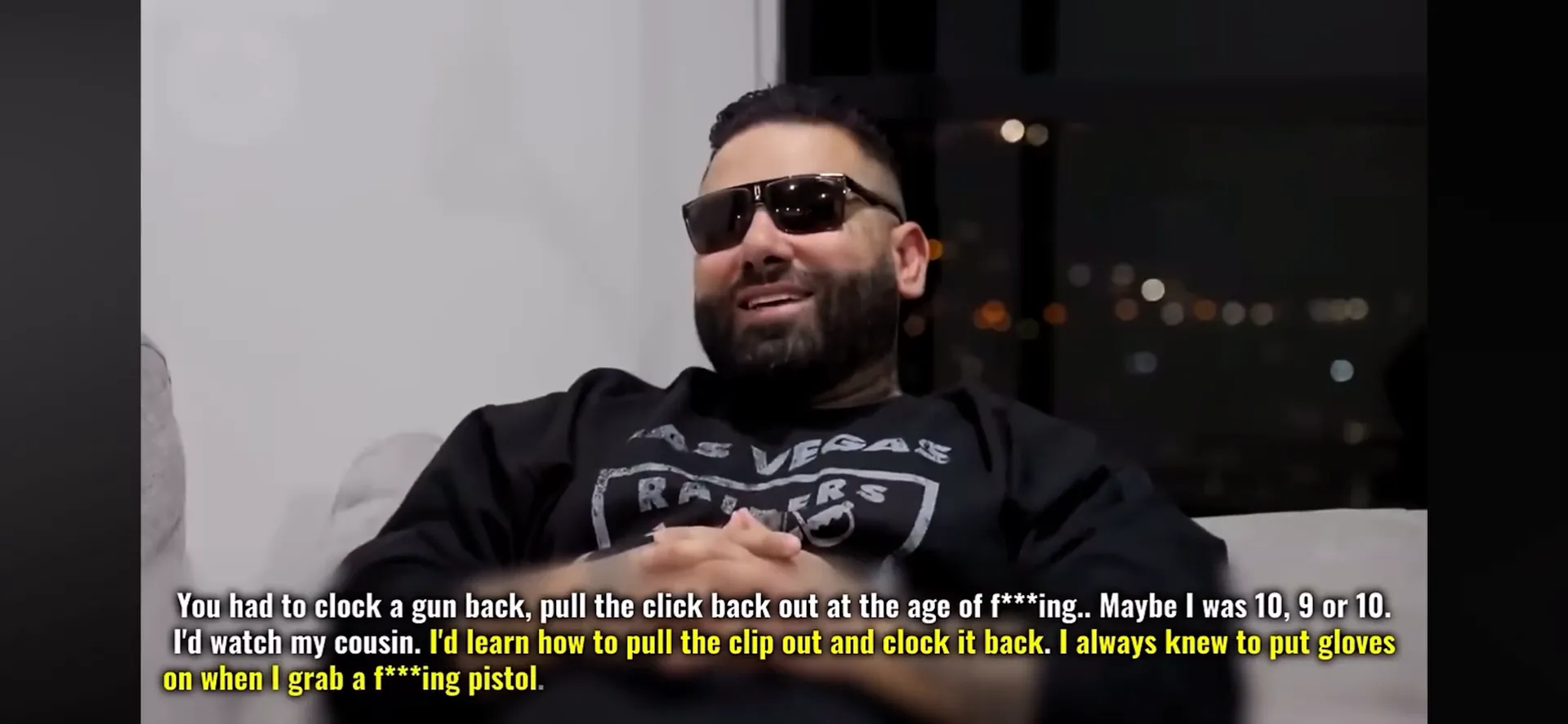
Entering the Biker World: The Nomads and the Making of a Prince
At fourteen, Modi walked into his first Nomads meeting, thanks to the reputation of his cousin Sam Ibrahim, who was the undisputed leader of the club and the king of King’s Cross. The Nomads were no ordinary motorcycle club—they were elite, feared, and commanded respect through a strict code of loyalty and violence.
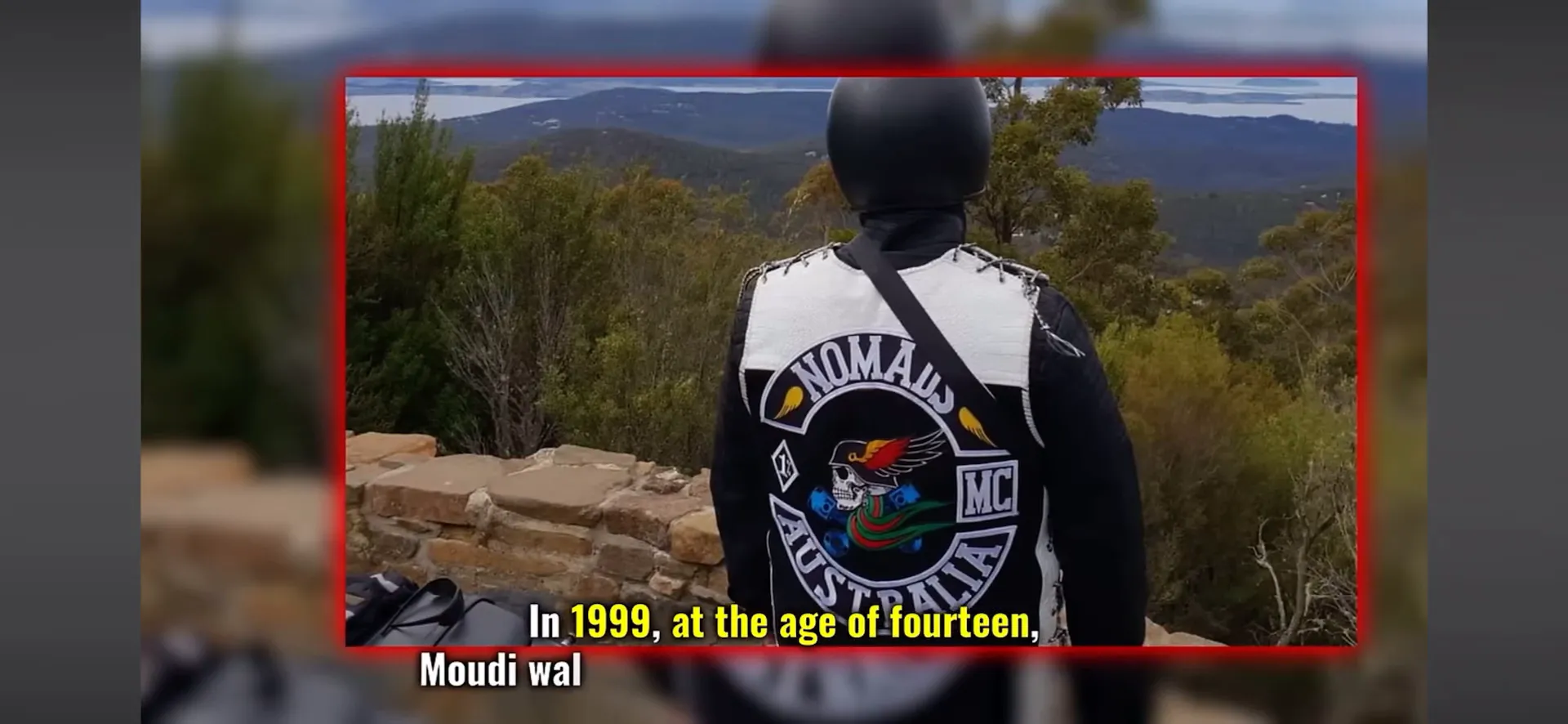
Joining the Nomads was a rigorous process. Members started as "hang-arounds," then nominees, before earning their colors—the center patch that symbolized full membership and status. Modi’s journey was marked by challenges, including being kicked out multiple times for bashing and attacking members, making his eighteen-month wait for his colors the longest in Nomads history.
"It took me eighteen months to get my colors. Keep getting kicked out, bashing members, attacking members now. That was the longest nom in the history of the club."
By nineteen, Modi was the youngest chapter president in Nomads history, commanding respect from men twice his age. His presence was felt across King’s Cross, the streets paying tribute to the boy from the commission flats who had become a prince of Sydney’s streets.
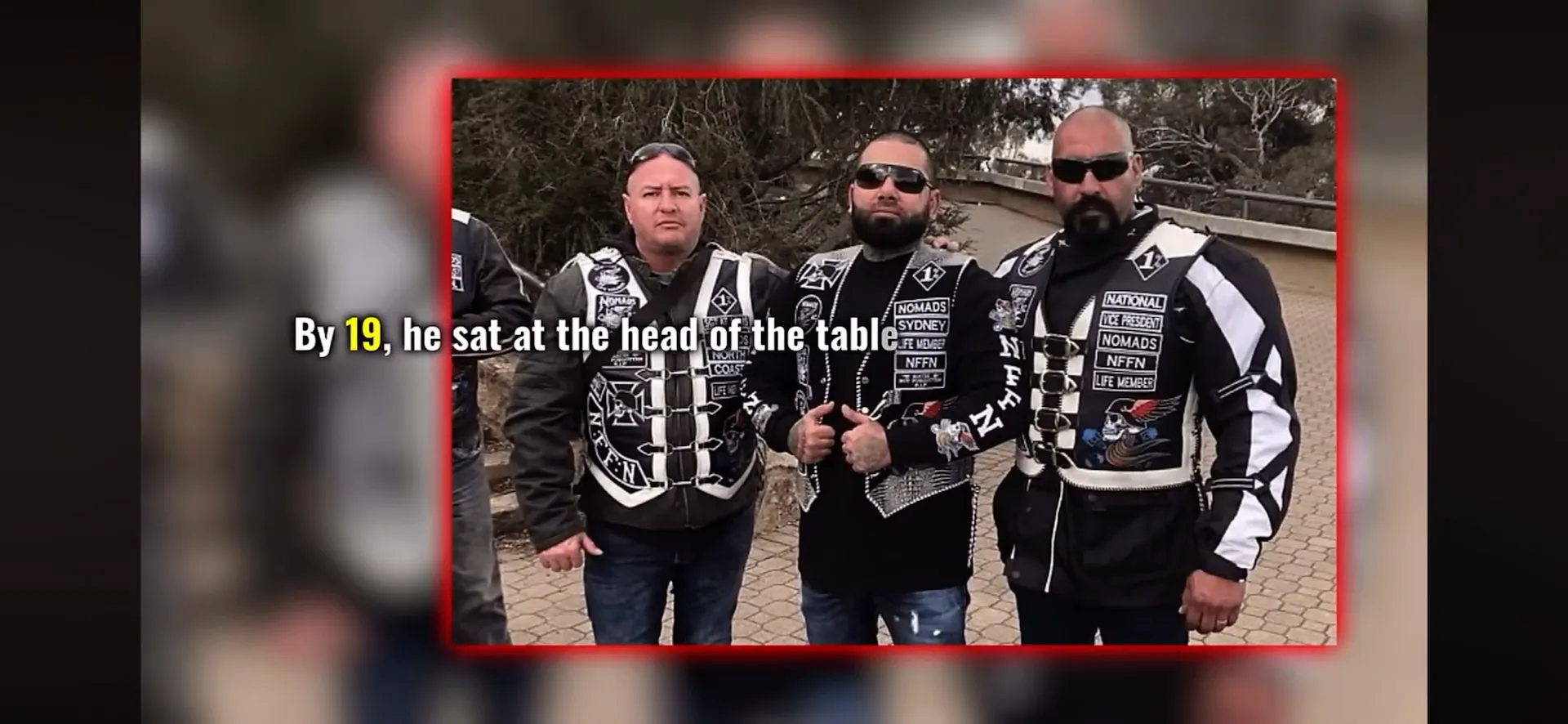
The Dark Side of Brotherhood
However, the brotherhood was not without its dark undercurrents. Racial tensions simmered, especially among Middle Eastern members who were derogatorily referred to as the "Taliban chapter," leading to violent clashes.
"In Modi's world, respect wasn't asked for. It was demanded and enforced with violence if necessary."
The power Modi wielded at such a young age came with a high price. His reign was marked by loyalty and fear, but also by bloodshed, with his name soon to be etched in the annals of Sydney’s violent underworld.
New Year’s Eve 2006: The Incident That Changed Everything
On New Year’s Eve 2006, a night that began with neon-lit celebrations in King’s Cross took a dark turn. Modi was at the sleeve master's tattoo shop when Robin Nassour appeared outside, making a defiant gesture that would ignite a deadly confrontation.
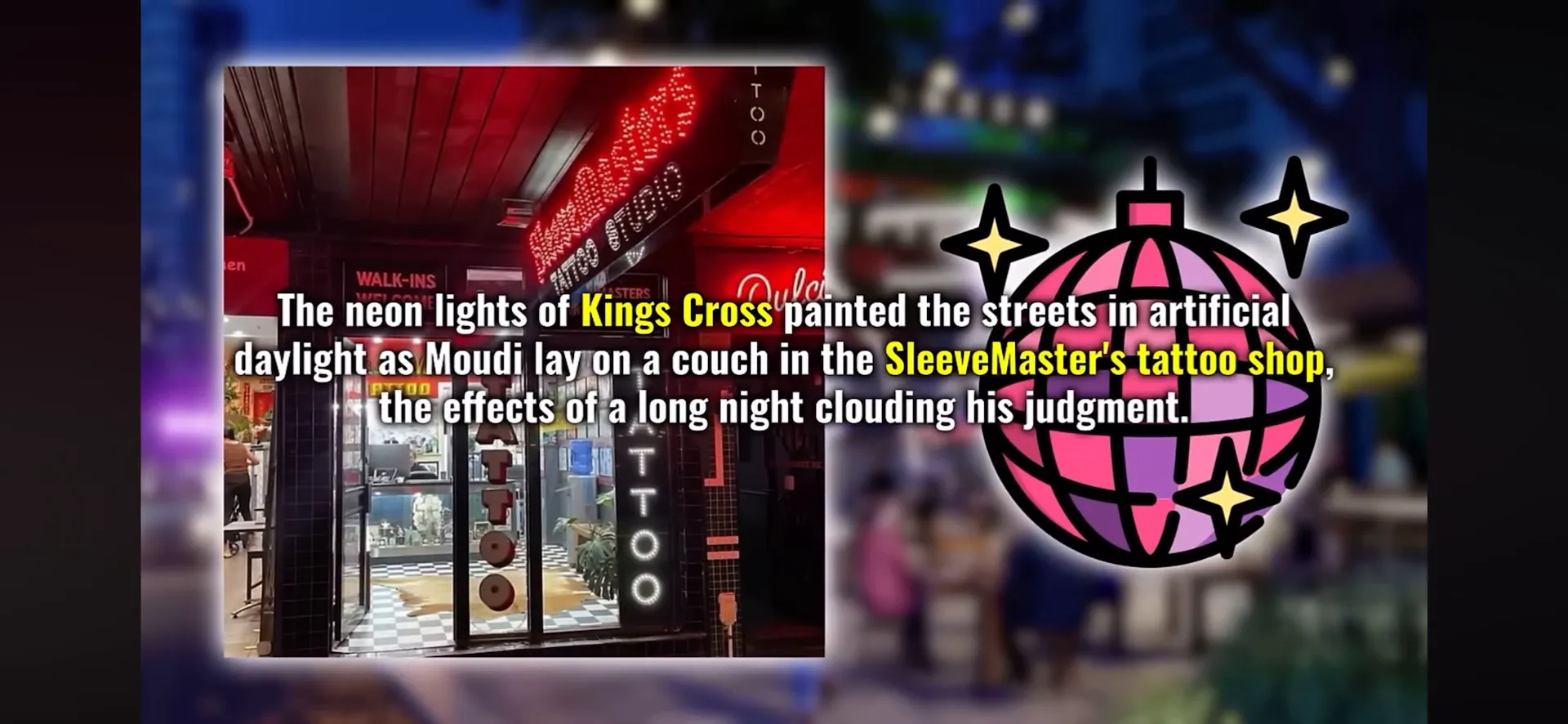
The dispute escalated quickly, culminating in a knife wound to Nassour’s leg during a fight in an underground parking garage. Modi claimed no knowledge of Nassour carrying a weapon and admitted to slapping him but maintained he never intended fatal harm.
"He was hit in the leg. With a knife here that he fled out. I never knew my mate had a knife on him."
Despite the tragic outcome, with Nassour’s life ending from the incident, Modi pled guilty to manslaughter and was sentenced to seven years in prison. The courts originally charged him with four murders, but three were dropped in a plea deal.
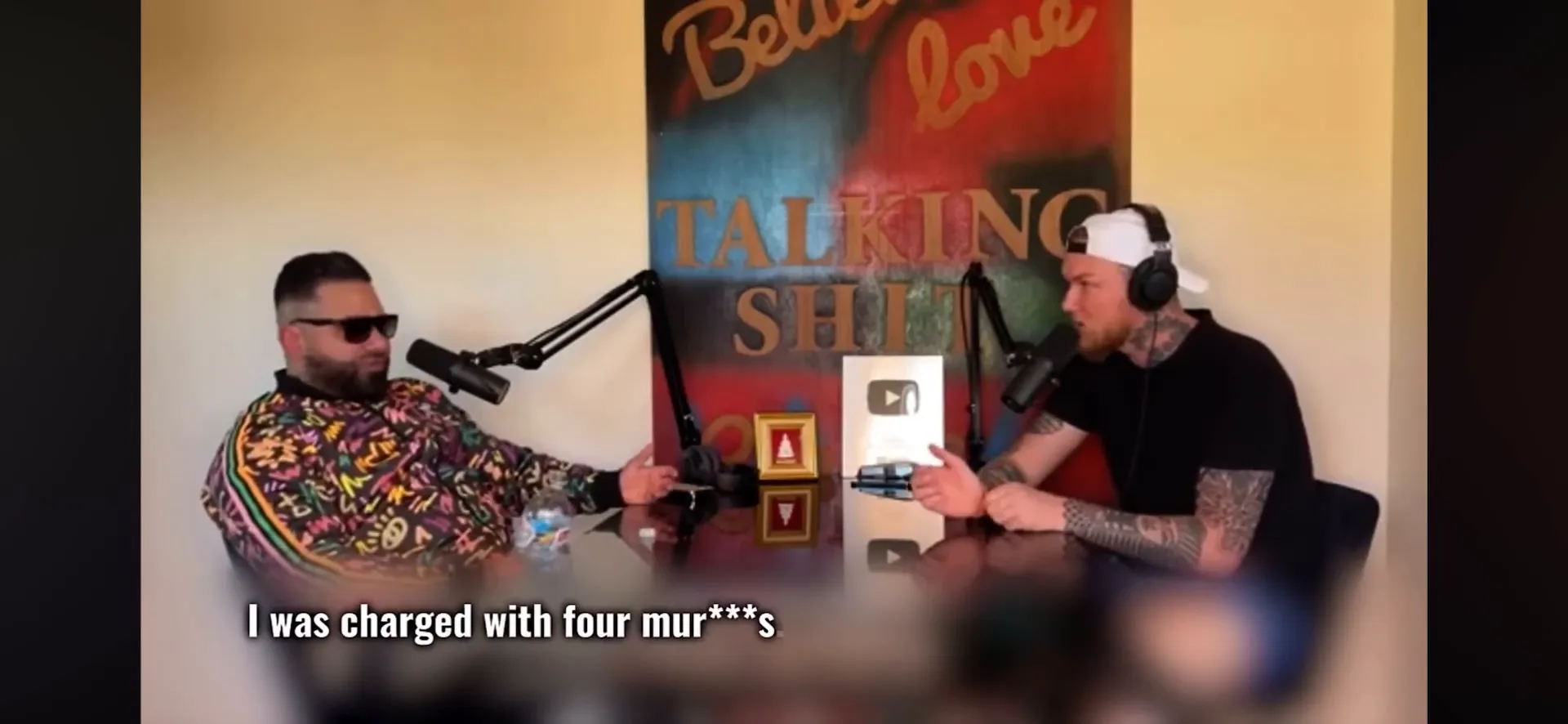
Prison: Isolation, Reflection, and the Birth of Notorious
Moody's time behind bars was brutal. He spent four and a half years in isolation, deemed too dangerous for the general prison population. Yet, rather than breaking him, this isolation forged a new, harder version of Modi.
"Out of the eight years, I spent five years in isolation due to the management deeming me a risk and a threat to the system."
During his incarceration, Modi immersed himself in religious texts—the Bible, Torah, and ultimately the Quran—searching for answers and meaning. He also founded Notorious, a prison gang that would become the street army for John Ibrahim, further cementing his influence within the underworld even from behind bars.

The Cost of Power: Endless Vigilance
Moody’s release in 2013 marked a return to a changed world. The streets had new rules and players, but the Nomads welcomed their prince home. However, the price of power was eternal vigilance. Nassour’s family hunted him relentlessly, and every public appearance carried the risk of revenge.
"The price of power was eternal vigilance, and Mudi Hajur had paid for his throne in blood."
Return to the Nomads and the Rise to National President
With his brother Sliman by his side, the Tajour brothers regained control of the Nomads, expanding their territory and influence across Sydney’s underworld. Their reign was marked by violence, expansion, and a tightening grip on the club’s operations.
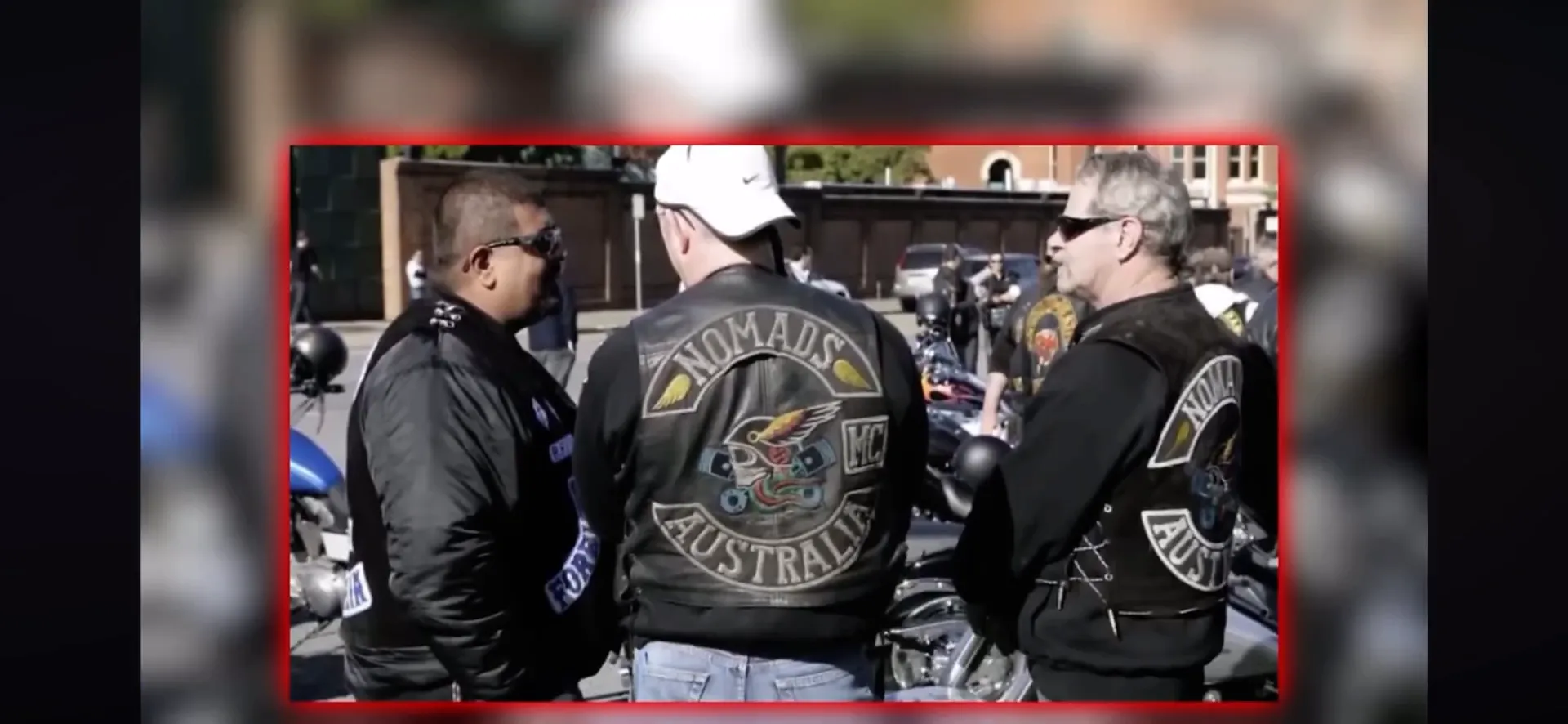
But law enforcement had evolved too. Strikeforce Raptor, led by Detective Superintendent Deb Wallace, became infamous for their relentless pursuit of bikie gangs using toughened laws that criminalized consorting and communication between known criminals.
"We will use every law available to us to bring you to justice."
Under these laws, even phone or Facebook contact between criminals was a crime. Modi’s brother was among the first charged under this legislation, highlighting the government's aggressive stance on biker gangs.
Leadership Under Pressure
Modi ruled with an iron fist, demanding absolute loyalty and punishing betrayal with violence.
"Follow my lead, you get out of line, I'll smash your head open... Live with morals and run with me. You'll be sweet."
Yet, the old biker codes were dying, replaced by suspicion and paranoia. Modi’s reign was built on a foundation of shifting sands, and the higher he climbed, the harder the fall became inevitable.
The Fall: Paranoia, Police Pressure, and Burning of Colors
By 2018, Modi felt the walls closing in. Surveillance was constant, with entire streets blocked off during his meals and four soldiers guarding him at a restaurant. Detective Superintendent Wallace personally served him terror watch list papers, signaling a new level of law enforcement scrutiny.

Pressure also mounted from within the club. Paranoia led Modi to suspect his own brothers were plotting against him. After twenty years in the club and reaching its highest rank, he faced a brutal choice: leave or die.
"When you lose trust in people and you're living in a dangerous world, you have no choice but to leave when you feel that if I stay in this environment, I'm gonna be murdered."
In 2019, in a historic and unprecedented move, Modi burned his Nomads colors live on a stream, symbolizing both defiance and surrender.
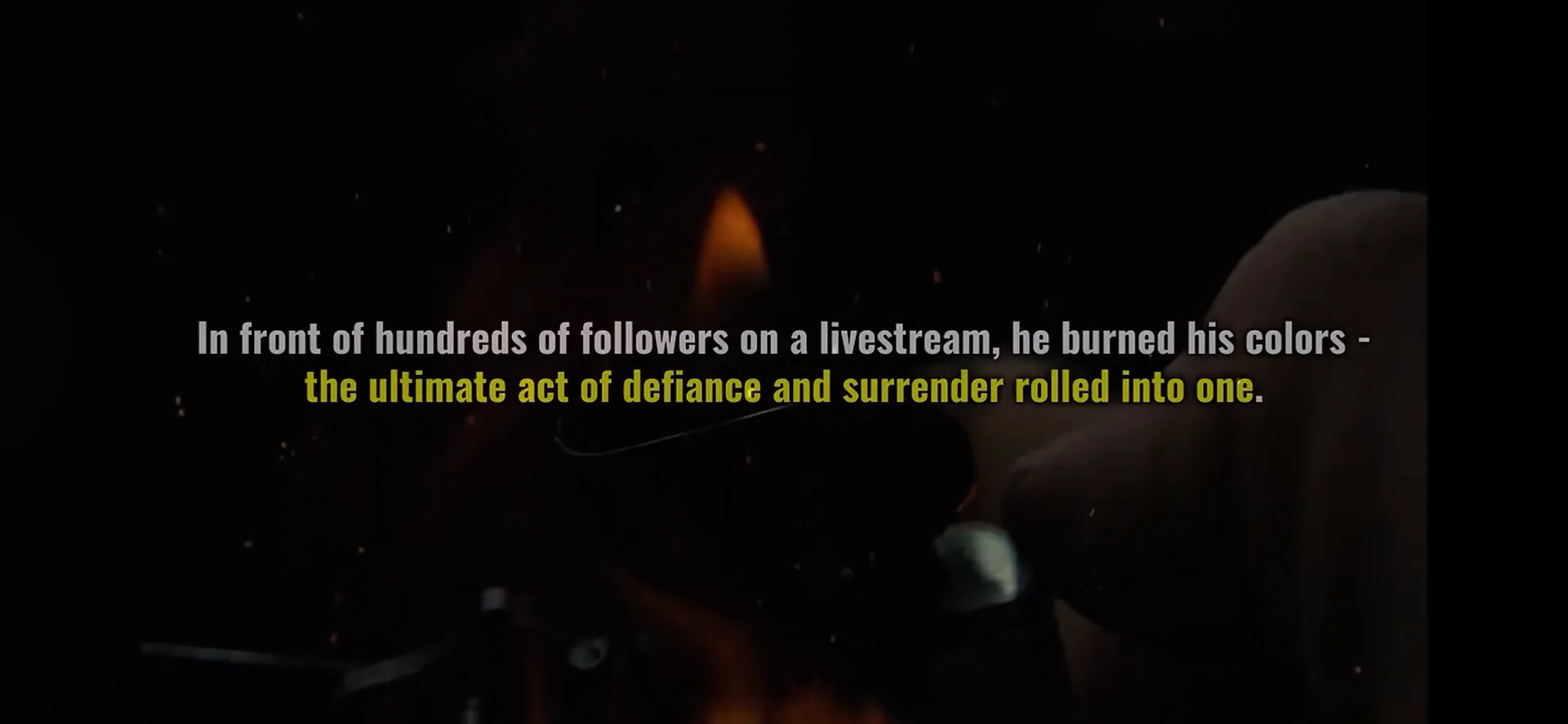
Life After the Club: Building a Digital Empire
Leaving the club meant losing all friendships and alliances. Modi describes the harsh reality of life post-bikie world:
"You're gonna build friendships and everything. You're gonna end up in two places, dead or in jail... So really three places, dead, jail, or alone."
But Modi was far from finished. Today, he rules a different empire—his TikTok account, can't fight fate fourteen, generates more revenue than most street operations, pulling in hundreds of thousands of dollars monthly. With over half a million followers, Modi has transformed his charisma and street smarts into digital influence.
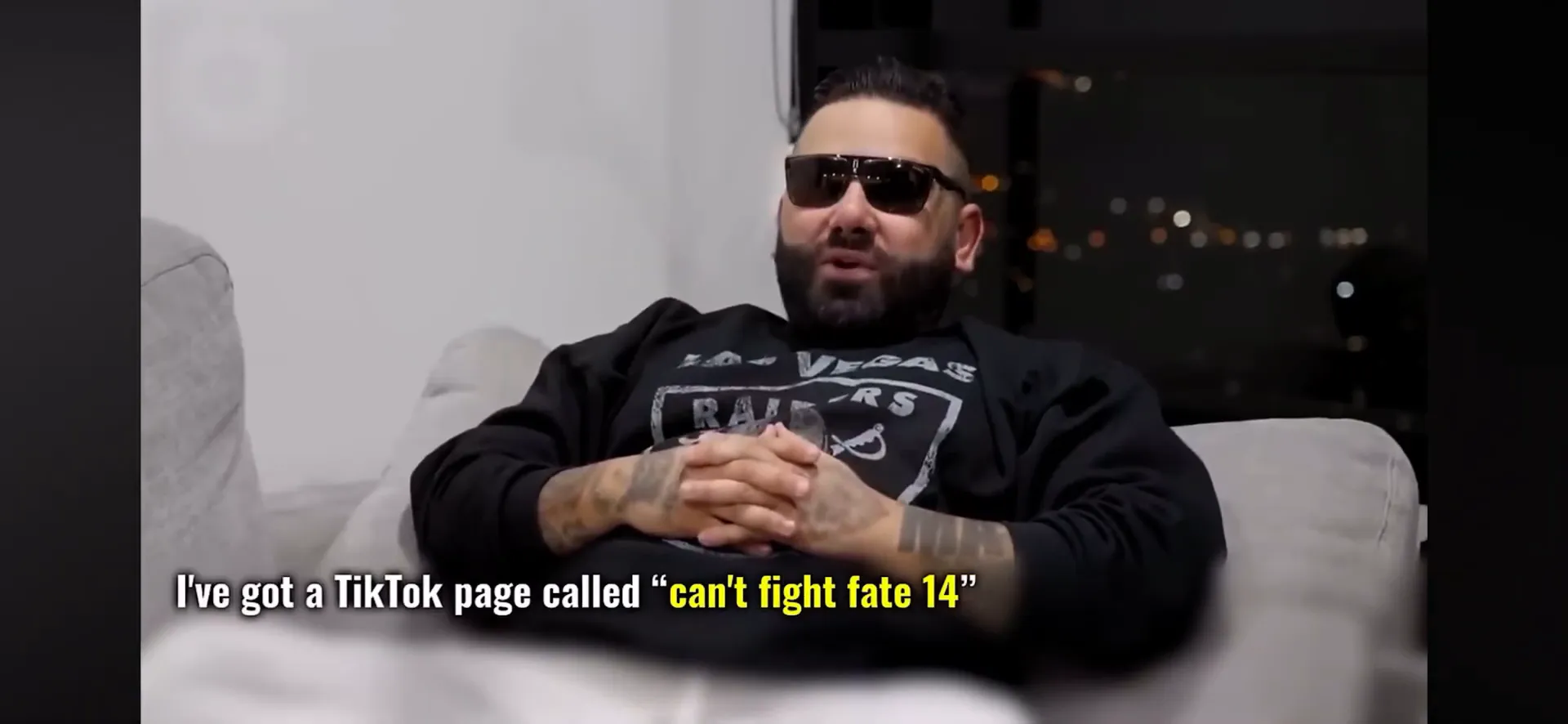
His studio serves as a war room where he engages daily with his audience, turning social media into a lucrative and legitimate venture. His son Gabriel, named deliberately to avoid gangster connotations, symbolizes Modi’s hope for a different future.
Turning Down the Past
Despite offers to return to the club life, including a recent proposition of four million dollars, Modi has refused, choosing to focus on his new path. Yet, the streets still whisper his name in Maryland, King’s Cross, and every dark corner of Sydney’s underworld.
"I grew up one of the baddest gangsters on the street following the footsteps of my cousin, Sam and John... The monster still lives inside me, just contained, controlled."
Conclusion: The Legacy of a Prince Reforged
Moody Tajour’s journey from a ten-year-old boy in public housing to the national president of the Nomads and now a digital influencer is a story of power, survival, and reinvention. His life encapsulates the rise and fall of a criminal empire shaped by loyalty, violence, and resilience.
While the old world of bikie clubs fades and a new generation takes control, Modi’s transformation highlights the evolving nature of power and influence in Australia. As law enforcement continues to monitor him, and as fans and critics alike watch his every move, the question remains: how long can a warrior be content with digital conquests?
Only time will tell if Modi Tajour has truly surrendered his crown or simply reforged it for a new age.
Frequently Asked Questions (FAQ)
Who is Sam Ibrahim?
Sam Ibrahim is a notorious figure in Sydney’s underworld, known for his leadership in criminal activities and his role as a prominent figure within the Nomads motorcycle club. He is also the cousin of Modi Tajour, whose story is intertwined with his.
What is the Nomads motorcycle club?
The Nomads are an elite and feared outlaw motorcycle club in Australia. Known for their strict codes of loyalty and violence, the club has been a dominant force in Sydney’s criminal underworld.
How did Modi Tajour become involved with the Nomads?
Modi joined the Nomads at fourteen, leveraging the reputation of his cousin Sam Ibrahim. Through blood, loyalty, and proving himself, he rose through the ranks to become the youngest chapter president at nineteen and later national president.
What led to Modi Tajour’s imprisonment?
Modi was involved in a fatal altercation on New Year’s Eve 2006 that resulted in the manslaughter of Robin Nassour. Although initially charged with four murders, he took a plea deal and was sentenced to seven years in prison, spending much of that time in isolation.
How did Modi Tajour reinvent himself after leaving prison?
After leaving prison and eventually burning his Nomads colors, Modi transitioned into the digital world, building a massive following on TikTok and Instagram. He now generates significant income through social media content creation and runs a streetwear clothing line.
Is Modi Tajour still involved in criminal activities?
Modi insists that his current ventures are funded by legitimate, "clean money." He has publicly turned down offers to return to club life and focuses on his digital empire, though law enforcement continues to monitor him closely.
Where can I learn more about the Ibrahim family and Sydney’s underworld?
For more insights on Sam Ibrahim, John Ibrahim, and the Sydney underworld, visit our related articles:
- 10 Lesser Known Facts About John Ibrahim That Will Surprise You
- Sam Ibrahim: Sydney Underworld Return
- Alameddine Syndicate: Sydney’s Feared Criminal Empire
- Inside Australia’s Gangland Wars